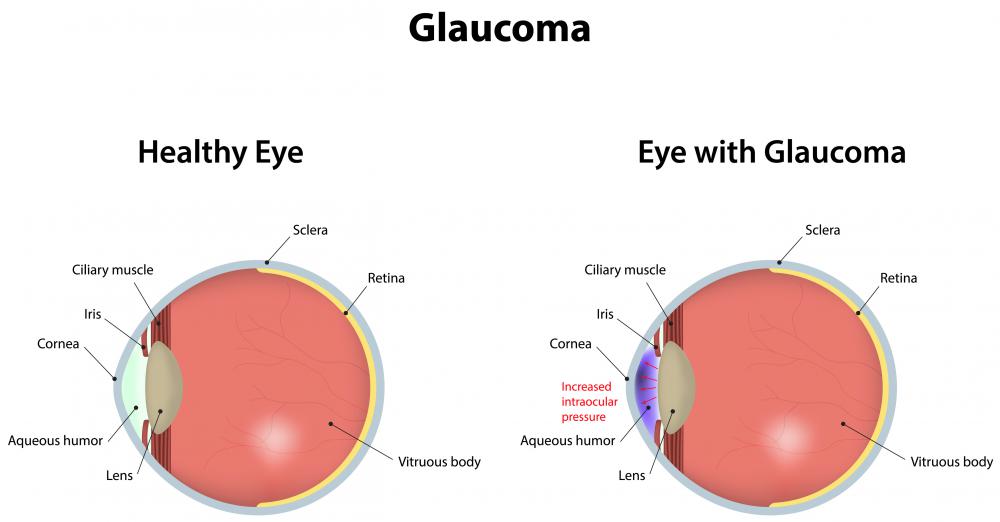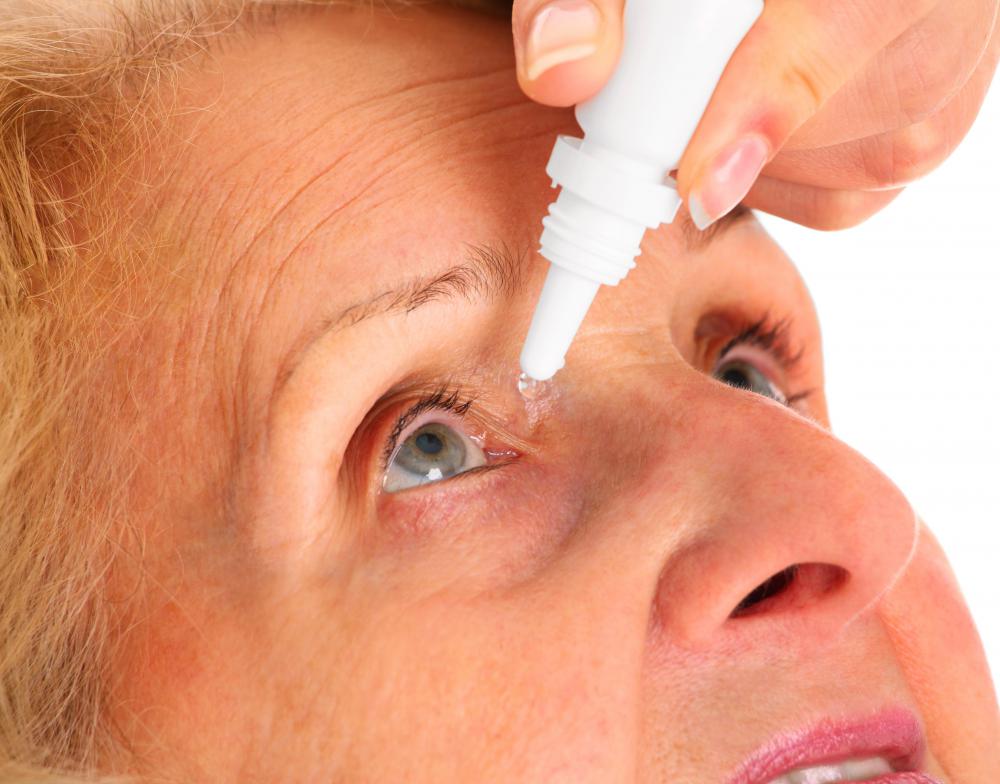At TheHealthBoard, we're committed to delivering accurate, trustworthy information. Our expert-authored content is rigorously fact-checked and sourced from credible authorities. Discover how we uphold the highest standards in providing you with reliable knowledge.
What Is Atropine Sulphate?
Atropine sulphate is the most common medically used form of the secondary metabolite atropine, derived from deadly nightshade and other poisonous plants in the Solanaceae family. When judiciously used, this alkaloid has an array of uses in human and veterinary medicine. It is an anticholinergic drug and thus dries up bronchial secretions, reduces sweat and can be used as an antidote to some types of poisonings. This formulation is also used in ophthalmology to dilate the pupils and treat various eye diseases. Another use of this drug is to stimulate the heartbeat of people whose heart rate is extremely low.
A number of plant secondary metabolites are lethal poisons at high doses and medically useful compounds at lower dosages. Atropine is such a compound. For medical uses, it most commonly is administered as atropine sulphate, frequently known as hyoscyamine. This compound comes in a mixture of two forms, d-hyoscyamine and l-hyoscyamine. Only the form in the l-hyoscyamine configuration, known as a stereoisomer, has effects on mammalian physiology.
This drug is a classic example of an anticholinergic drug. Such compounds block the effects of chemical signaling between certain types of nerve cells by inhibiting acetylcholine. With atropine sulphate, this effect is reversible.

Acetycholine activity is required for nerve function. Compounds that inhibit its activity, such as organophosphate insecticides and nerve gases, can be lethal poisons. The drug is used as an antidote to such forms of poisoning and is carried in an injectable form by troops entering into areas where they might be exposed to nerve gases such as sarin.

Anticholinergic effects can help dry up bronchial secretions. Atropine sulphate is sometimes an ingredient in cough syrups. It also inhibits sweating and has been used to treat clinical conditions in which the patient produces an excessive amount of sweat.
Eye doctors sometimes use eye drops containing atropine sulphate to dilate the eyes of patients, widening the pupils. Thus, the doctor can better view the inside of the eye to perform a more thorough examination. The drug is also used to treat certain eye disorders, such as a specific form of glaucoma.
For critical cases of low heart rates, atropine sulphate is used to increase the rate. Paradoxically, very low doses can have the opposite effect. With such treatments, the drug is administered in an injectable form.

Atropine sulphate interacts with many other compounds, and one should be sure to provide the prescribing doctor with a list of all prescription drugs and supplements being taken. This drug's effects are increased by taking antidepressants, antihistamines, benzodiazepines, antipsychotics and a number of other drugs. Thus, patients taking psychiatric medications might need to be especially careful when taking atropine. The antidotes to this drug are the natural products pilocarpine or physostigmine.
AS FEATURED ON:
AS FEATURED ON:














Discuss this Article
Post your comments